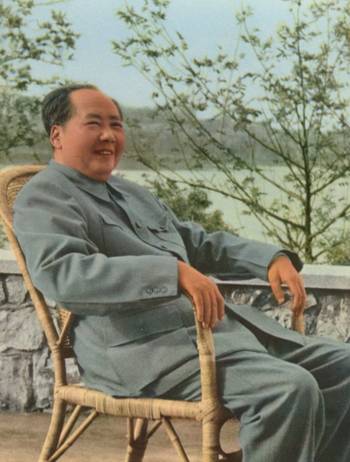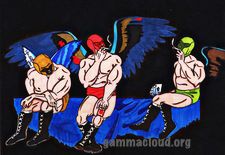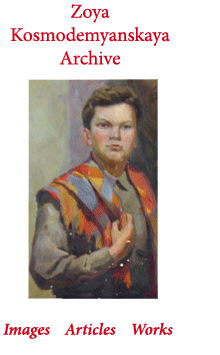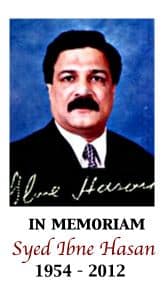The Thought of Chairman Mao and the Chinese People
(Han Suyin; From a speech recorded in London, c. 1972)
Introduction | Lecture One | Special Collections
Note: Due to issues regarding the quality of the source audio, a few words and phrases were unintelligible to the transcriber and are noted as “indistinct” in the proceeding transcription. Emphasis is noted with italics based upon the speaker’s inflection.
(Audio recording joined in progress)[1]…people of China has everybody agitating the “Little Red Book” and everybody shouting the same slogans and some who like China bravely say, “Well, this is the way it ought to be” but in themselves, they still have a few misgivings. And others, of course, frankly criticize. I can say that this picture is not altogether correct. It is quite true –and I think that this is a philosophical truth which we must agree on – that there has been no great movement in the world, no other really great movement that has changed the world that has not had basic philosophy as its foundation. If we go back in the history of humanity, we find that many such books looked upon as religious books did provoke great movements and these great movements – they changed the world. And so we must agree that unless there are basic principles; basic philosophical principles; basic political principles which animate the mass of people–ideas; new ideas which come to them and which open their minds to a new way of looking at things–we shall not have anything new. And therefore, waiving the Little Red Book may be symbol which you dislike, but it was a symbol of learning a new philosophy. It is not only what is written in the Little Red Book that I am speaking of but it is the whole of the philosophy that Mao Zedong made accessible not a small elite but to one quarter of humanity. And this philosophy, this way of looking, has transformed one quarter of humanity who only a few years ago–even ten years ago–was still thinking in medieval terms on the intellectual way, was still thinking in a way which was destructive to their own best interests. It has transformed a great many of them.
I would like to elaborate a little on this. I do not look upon what Mao Zedong has written by trying to give it any name. You can call it Marxism-Leninism; I am not a Marxist. I look at it from a scientific view now. And from a scientific point of view, I can say that I personally feel that what he has written and what the Chinese people are learning is rigorously a scientific way of thinking; the dialectical way of thinking and analysis.
Now, you will say, “How can this help? How can this make for better crops? How can this make for factories? How can this make for a better life?” Well it does and I’ll tell you why: It’s because it is much closer to reality. It is reality. And when you know what reality is; when you are not living in a dream world; when you cope with reality as it is, then you become scientific-minded. Then you understand the principles by which you can really produce results.
I had not seen it before. And in these three years, I have seen it. I have seen peasants who really now begin to understand the scientific way of growing things–not superstition. Not thinking that if they do some mumbo jumbo then the crops will be better, but really analyzing the soil and the rain and the sun and looking upon it in a dialectic way. That means from both sides–seeing its effects; seeing its cause to effect and not only that, but also how its effects can transform itself and again transform themselves so that the primary or original shape has now become another. And when you have peasants doing this kind of analytical thinking, they have made a great leap into the future. They have become scientists. They now understand not only what they have been doing but they can create. And it is a tremendous creativity of a whole people released which is so exhilarating. And that is why I also sound as if I were a bit idealistic because I myself–being always on the lookout for something new–I have found this tremendously stimulating. I have found it so stimulating that you can spend hours in a commune talking with peasants and find them grasping these ideas and manipulating abstract concepts in such a way that, really, they are shaping something new. And they are now applying all this not only to their daily living, to coping with the earth with the crops and so on, but also as a preparation for themselves for the future. Now this what was so interesting to me; this is the main thing that I think the Cultural Revolution has done.
And the other, the second most important thing that it has done besides this opening of the mind–this emancipation and true liberation of the mind–the second thing that it has done is a moral–a moral standard of values. Now we all accept that there should be a standard of morality but sometimes we feel that morality is very boring and annoying. And sometimes we feel that freedom resides in the throwing away of all that is called the shackles but when we do that, do we really have freedoms? And what does “freedom” mean?
In China, what has come now is the realization that self-indulgence is not freedom; that putting “me” first all the time is not freedom. But that true freedom and the ways of freedom reside in unselfishness and serving others–what is called “serving the people.” And this also has become something genuine. Right up to now, I tell you, right up to now I did not feel it inside and now I feel it. All the years I did not feel it–now I feel it. Now it has become almost a habit. To think of others first before thinking of oneself not for everybody but for quite a few people–quite a few people– and this also is very entrancing because it becomes a habit. And when it becomes a habit of the mind—when it becomes so easy and so simple and so natural—to really love your neighbor more than yourself, then you have a new society, but not before.
You cannot make this society upon edicts. You cannot make it by giving orders. It must come from each person and this is also what I have found this year which I had not realized before. There is a way now that when you walk about—and I have been in the interior provinces like Sichuan (Szechwan) and Guizhou (Kweichow) and Ningxia (Ninghsia)—places that are not visited; places that are far out and when there, you see it. When there you see the countryside alive with this new spirit, then you really feel that something has been done. When you find that housewives really now get together and organize little factories and do something about it, and that’s…generally, they have not they have not done this for any gain for themselves but because they feel they have to serve their community. Because they feel they have to serve the people.[2] Then you are somewhere. And this happens on a large scale; a little everywhere. Again, I am not saying that everybody thinks the same way. I am quite sure that there are still a lot of selfish people in China. I’m quite sure of it. But there are quite enough people around now who have grasped this; for whom it has become a second way of life and when that it is infinitely more rewarding than in which the one they only sought for private gain in a way that really now I feel the revolution can be carried forward in order to truly create socialism as it should be and not the kind of thing that we have seen in certain countries, which was a bureaucratic elite imposed upon people.
Now you have been told about the achievements by many other people. I would only like to concentrate on what I have seen in a certain province. Near Ruijin in Jiangxi (Chiang-hsi) Province, I have seen and crossed thirteen bridges over fairly wide rivers. Thirteen bridges, large bridges, built by the peasants’ commune themselves without costing any cent to anybody, built to serve the people.

Members of a brigade in charge of women’s and public health work. (“Picture from “Inside a People’s Commune,” 1974.
I have seen small factories in the communes. Small factories run by women. Small factories run by young people. Small factories run young girls. And I asked them, I said, “How did you start?” And they said, “Well, I don’t know…Two or three of us got the idea, then we talked to others, then we all got together, then we did it.” And I say, “But how? Did you ask any money from the government?” “Oh, no! Oh, we would never think of doing that! Oh, no; we did it ourselves. We started using …Well, somebody brought maybe a pair of scissors and somebody else brought the bench and a third on brought this and we put it all together and then we went to a neighboring factory and we asked them to lend us two workers who knew something and (they) asked (us), ‘What would you like us to do?’ and (we) said, ‘Well, we would like to make this or that’ and so we started. And now it’s doing well.”
I visited such a factory of housewives near…in Zhangshu (Chang-shu). They had started with seven housewives who had, between them, been told by their husbands to stay at home (laughter from the audience) because their husbands made enough money. Their husbands were steelworkers or cadres. And their husbands said, “I want my wife at home. I want her to be at home and cook my mean when I’m back.” And you know, these women—young—they were around about between 25 to 35, they thought to themselves, “Well that is not a good way of serving the people, so they got together. And they put their money together. They had, altogether seven of them, they had ¥50 Yuan, which is $25, which is £10. They had £10 and with that, they bought two benches and about seven large scissors because some of them had gone to a neighboring factory and they had said, “We want to do something,” and the neighboring factory had laughed— “Ha ha” —and they said, “Well, you can make those thin strips of metal to wrap bales with…To tie up bales with.” So they had started with that and they did that for a few months and they did it so well that after a few months, they had made a bit more money. They now had, I think, about $200. And, with that, they bought a machine and they made more. And with that, they were able to buy another machine and they said, “Let’s diversify.” So, they went back to the factory and they said, “We’re ready to do some more,” so the factory gave them other spare pieces other spare pieces to do. And, little by little like this, they have now built a factory of 143 people making $10 million a year. This $10 million they give to the State. They…pay themselves $35 a month. They make $10 million making small, spare parts of all kinds for several factories around. This is one example – and there are so many more; there are masses of examples like that – of people doing things in the factories, in the communes, everywhere. This would not be true if there was not this new spirit; the spirit of initiative, the spirit of serving the people.
When I told this story in America, somebody said, when I got to the $10 million bit somebody said, “My, my! That’s a real capitalist enterprise!” (laughter from the audience) I said, “Yes, it is! Accept for one little difference – very small difference: They did not keep the money for themselves. They gave it to the State.” Apart from taking a little bit to buy some more machines because they are now going to do something more – I think now they are building spare parts for tractors – apart from that, drawing a plan for that and giving it to the State, all the rest went to the State and they were very happy that way. And when I interviewed them and I asked them, I said, “But aren’t you going to raise your salaries?” they looked at me and they said, “But what for? We have everything we need!” There is no point in accumulating a lot of money. You wouldn’t know what to do with it, anyway.
Now for the bad things because, of course, there are bad things. One should not only talk of the good things, because if one does, one is not at all impartial. Are there still selfish people in China? Yes, there are! Of course there are! There are constantly selfish people doing selfish things as there are anywhere else. But the way of dealing with them is quite different. The way of dealing with them in China is for everybody who is around them, not to immediately insult them and no punishment, but to try to show them and to educate them; to try to show them that really, they’re not doing themselves or anybody else any good by what they do. And I remember one terribly moving story I was told by a cadre who said: “Well, I had a friend who had a very beautiful watch and this friend also had a very weak heart. And this friend said to me, ‘When I die’ – he was a bit pessimistic about himself because he’s still not dead – (laughter from the audience) but he said, ‘When I die, I’ll give you my watch.’” And he said, “One evening my friend laid there and he was very ill and I had to come look after him. And I looked at his watch and I looked at him. And suddenly the thought crossed my mind: Now if he dies, I’ll get that watch.” (laughter from the audience) And he said, “For a moment, I said…Well I won’t call the doctor and I’ll get the watch.” And then he said, “I went and called the doctor.” And he said, “I feel ashamed of myself for having had these terrible thoughts.” But he was able to speak of it; he was able to face it. His face it. And his friend is well and alive and wanted to give him the watch. He said, “Take the watch since you like it so much” and he said, “No, I won’t take it. And they are better friends than before. But he was able to face himself; he was able to see that he also had these terrible thoughts.
And you see, with the dialectical method applied to everybody nobody expects other people to be ideal. Nobody expects other people not to have defects. There is a good and bad side to everybody so they can accept themselves as they are and so that their good side can try to change the bad side. And that is the way philosophy also acts in your personal life. It is the same in marriage. Marriage is not “…and they married and were happy ever after.” You know that. (laughter from the audience) Marriage should be, “…and they married and they worked hard at their marriage ever after” because you have to work hard at a marriage to make it go. But if you get married with the kind of idea that is sometimes spread here, that the other person must be as you think they must be, otherwise there’s something wrong with them, you’re not going to get anywhere much with your marriage. But if, like the Chinese, you don’t expect them to be necessarily ideal but neither do you expect them to be absolute demons, then you sit down and you talk problems over.
And this is where I was most moved. It was in the dialectical method [of] Mao Zedong Thought dealing with the family problems. There are family classes in Mao Zedong Thought. What does that mean? That means that in a family, old and young, and may I remind you that in China the family is not destroyed; that most grandparents live with their children and grandchildren—families sit together and they talk over things. They read Mao Zedong and then they try to make democracy work in the family. How does democracy work in the family? In China before, there was a great deal of the paternal —of the father having a lot of rights, and talking and telling everybody what to do. And this has now disappeared, or is disappearing. Not everybody, of course. We must remember that probably there still are a few men throwing their weight around. But otherwise, in these family conclaves, you have the children speaking up and that is the way that children can speak to their parents. And you have parents speaking and giving their point of view. And so when in America, they ask me whether there is a generation gap in China, I said, “You mean don’t talk to each other.” I said, “In China, a young man who does not talk to his parents is not considered to be truly revolutionary. If he is truly a revolutionary, he must be good at talking with older people and persuading them; at changing their ideas.” I think that in the families today, there is because and precisely because there is a new way of looking at things; there is a great deal more of family feelings then there ever was. There is a great deal more of understanding and of health in the family.
And this consolidates, of course, social life too. It makes for a better society; a more harmonious one. Not that there are no difficulties, but these difficulties can be debated openly and today in China you will find that there are two slogans that constantly recur besides the one of fighting selfishness, of serving the people . There are two others that constantly recur and one is that you must investigate every situation; you must not make up your mind hastily. You must investigate and study. And the second one is that you must debate and talk and persuade and educate and not rush off to make hasty judgments. But you must debate and educate.
Now I think that in this type of society, of course, there will be people coming to it who will find that is singularly lacks luster. I mean [indistinct] there are no clubs and so on. And they say, “What do people do with themselves?” Well, I can assure you that people have a very good time. They have a very good time because they truly feel that they are doing something worthwhile. Because every small thing — whether you are sweeping the floor or whether you are baking a cake or whether you are working a machine or whether you are building a bridge or whether you are flying planting corn – has a meaning beyond the meaning of the act. It is full of the value of doing something for the collective good; for the people and for the revolution. It is a way of advancing. And after all, what is the meaning of life than to find a meaning to everything normal, everything small? Not to rush of to do something outstanding, heroic [indistinct] or something that you think will be outside of the ordinary, but to be able to live fully, your life every day in the knowledge that what you are doing is really serving others; doing good for others; not only for yourself but for others —and the others first.
I think that there is this feeling, a greater reward than in any other. A greater reward than in amassing money and a much greater reward indeed than in just imprisoning the self in self. And so I have thought that there was a meaning to freedom. Huey Newton, the Black Panther who went to China this year said in America on television that the only place where he had felt free is China. Perhaps he was exaggerating a bit. I won’t argue about that. But what he meant was that he felt there that the kind of pressures that he felt in his own society were not there. And it is a great pressure indeed when you are confined, cribbed and caged within your own little self and you’re always only thinking of that. It is a much greater freedom to be thinking in much greater terms of everybody else.
And now in China, it is not only China that they are thinking about, but the whole world. As Mao Zedong said and has repeated again and again, “China’s contribution to the world has been too little so far. We must give more.” And in this giving, it is already felt throughout the world. China gives $750 million in aid, $250 million more than the USSR—this is from The New York Times; and The New York Times adds: “And whereas other countries exact strict businesslike terms, most of China’s aid is without interest—long-term—and is designed towards the recipients’ advantage.” And so, you see, this can even be recognized by a newspaper which, after all, is not really distinctly, shall I say, to the left. (laughter from the audience) And this kind of giving is only the beginning of what China can do and will do, for I believe that you will see in the years to come that a new spirit will emanate from China and that more and more people from the world will recognize this spirit and this spirit is based upon what Mao Zedong has said and repeated again and again: “Serve the people.” Not only the people of one color or one nation, but the people of the world; those who work and those who toil.
And now this is what I have found, at last, in China this year. I have never spoken like this because I was not quite sure. This year, I am sure I have seen it. And because I have seen it, I have been made very happy. I have been very happy and now, to finish, some people will say, “Yes, but won’t this change? Will China stay like that or will she too change?” Nobody can guarantee the future. That is why we must always be vigilant. And the Chinese themselves will tell you that the question is not settled. Therefore, there must be many, many people who are imbued with this spirit, for it is not in edicts and laws and a small elite that you can impose these things. It must be done by the masses; by all the masses together; by the people who work and toil: the peasants, the soldiers, the workers who must understand this. They are the guarantee; the people, and the people alone, are the force that moves history. I did not understand that before and now I know it. It is true—it is true, it is in their hands and it is where they all manifest themselves. And if the peoples of the world also learn this lesson—that what they call “democracy” is truly that: taking the responsibility upon yourself of serving the people of the world, then only will there be a changed world. Thank you very much. (Applause) ✭
[1] Judging from the context of the proceeding sentences, it appears as though Dr. Han was discussing the popular perception of Mao and Mao Zedong thought from outside of China as things were at the time of her speech.
[2] For an extensive overview of this integral component of Mao Zedong Thought, see Section 17 of Quotations of Chairman Mao Tse-tung, “Serve the People.”











